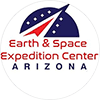The Future of Space Travel: Innovations and Challenges
Explore the latest innovations in space travel and the challenges that lie ahead. This blog delves into the cutting-edge technologies showcased at the Phoenix Space Museum, such as reusable rockets, space tourism, and the potential for human settlements on Mars, shedding light on the future of human space exploration.
Space travel has always captured the imagination of humanity, driving us to push the boundaries of what is possible. As we look to the future, the possibilities for space exploration are more exciting than ever. Technological advancements are making space travel more accessible and sustainable, while new challenges arise that will test our ingenuity and determination. At the forefront of these developments is the Phoenix Space Museum, which showcases the innovations shaping the future of space exploration.
Reusable Rockets: Revolutionizing Space Travel
One of the most significant advancements in space travel is the development of reusable rockets. Traditional rockets are expensive and single-use, with most parts burning up or falling into the ocean after launch. This makes space travel prohibitively expensive and environmentally unfriendly. However, companies like SpaceX and Blue Origin are changing the game with reusable rocket technology.
SpaceX’s Falcon 9 rocket, for instance, is designed to return to Earth and be reused multiple times. This innovation dramatically reduces the cost of launching payloads into space and makes frequent space travel more feasible. The successful landings of Falcon 9’s first stage have demonstrated that reusable rockets are not just a theoretical possibility but a practical reality. Blue Origin’s New Shepard rocket also exemplifies this trend, focusing on suborbital flights for space tourism and research.
The Phoenix Space Museum features detailed exhibits on these reusable rockets, providing visitors with an in-depth understanding of the engineering challenges and breakthroughs involved. These exhibits highlight how reusable rockets are paving the way for more affordable and sustainable space exploration.
Space Tourism: Bringing Space Closer to Home
The concept of space tourism is no longer a distant dream but an emerging reality. Companies like Virgin Galactic, Blue Origin, and SpaceX are working to make space travel accessible to private individuals. Space tourism promises to open up the experience of space to a broader audience, allowing ordinary people to experience the awe and wonder of the cosmos.
Virgin Galactic’s SpaceShipTwo is designed to take passengers on suborbital flights, offering a few minutes of weightlessness and breathtaking views of Earth. Blue Origin’s New Shepard aims to provide a similar experience, with fully automated flights that carry passengers to the edge of space. SpaceX is pushing the envelope even further with plans for orbital tourism and missions around the Moon.
The Phoenix Space Museum’s space tourism exhibits allow visitors to explore the designs of these spacecraft and learn about the training and preparation required for such journeys. These exhibits not only inform but also inspire visitors to dream about the possibilities of experiencing space firsthand.
Human Settlements on Mars: The Next Frontier
One of the most ambitious goals in space exploration is the establishment of human settlements on Mars. This endeavor presents numerous challenges, from the technical difficulties of interplanetary travel to the harsh conditions on the Martian surface. However, advancements in technology are bringing us closer to making this vision a reality.
SpaceX’s Starship is at the forefront of this effort. Designed for long-duration space missions, Starship aims to transport humans to Mars and potentially establish a self-sustaining colony. NASA is also working on the Artemis program, which aims to return humans to the Moon as a stepping stone for future missions to Mars.
The Phoenix Space Museum offers exhibits that delve into the technologies needed for Mars colonization, such as life support systems, habitat construction, and in-situ resource utilization. These exhibits provide a comprehensive look at the steps required to turn Mars into a second home for humanity.
Challenges Ahead: Overcoming the Obstacles
Despite the incredible advancements, significant challenges remain in the quest for space exploration. Radiation exposure, life support, and the psychological effects of long-duration space travel are major concerns that need to be addressed. Furthermore, the development of sustainable technologies for living on other planets is crucial for the success of long-term missions.
The Phoenix Space Museum does not shy away from these challenges, presenting them in a way that educates and encourages problem-solving. Interactive exhibits and expert talks provide insights into the ongoing research and development aimed at overcoming these obstacles.
Conclusion
The future of space travel is filled with promise and excitement, driven by innovations that are transforming our capabilities and expanding our horizons. From reusable rockets and space tourism to the potential colonization of Mars, the advancements in space technology are bringing us closer to becoming a multiplanetary species.
The Phoenix Space Museum serves as a gateway to this future, offering a glimpse into the technologies and challenges that lie ahead. By engaging with these exhibits, visitors not only learn about the cutting-edge advancements but also become inspired to contribute to the future of space exploration. As we look to the stars, the possibilities are endless, and the journey has only just begun.
For more detailed information and exhibits about the future of space travel, visit the Earth & Space Expedition Center’s website. Here, you can find resources, educational programs, and events that delve deeper into humanity’s journey to the stars.
